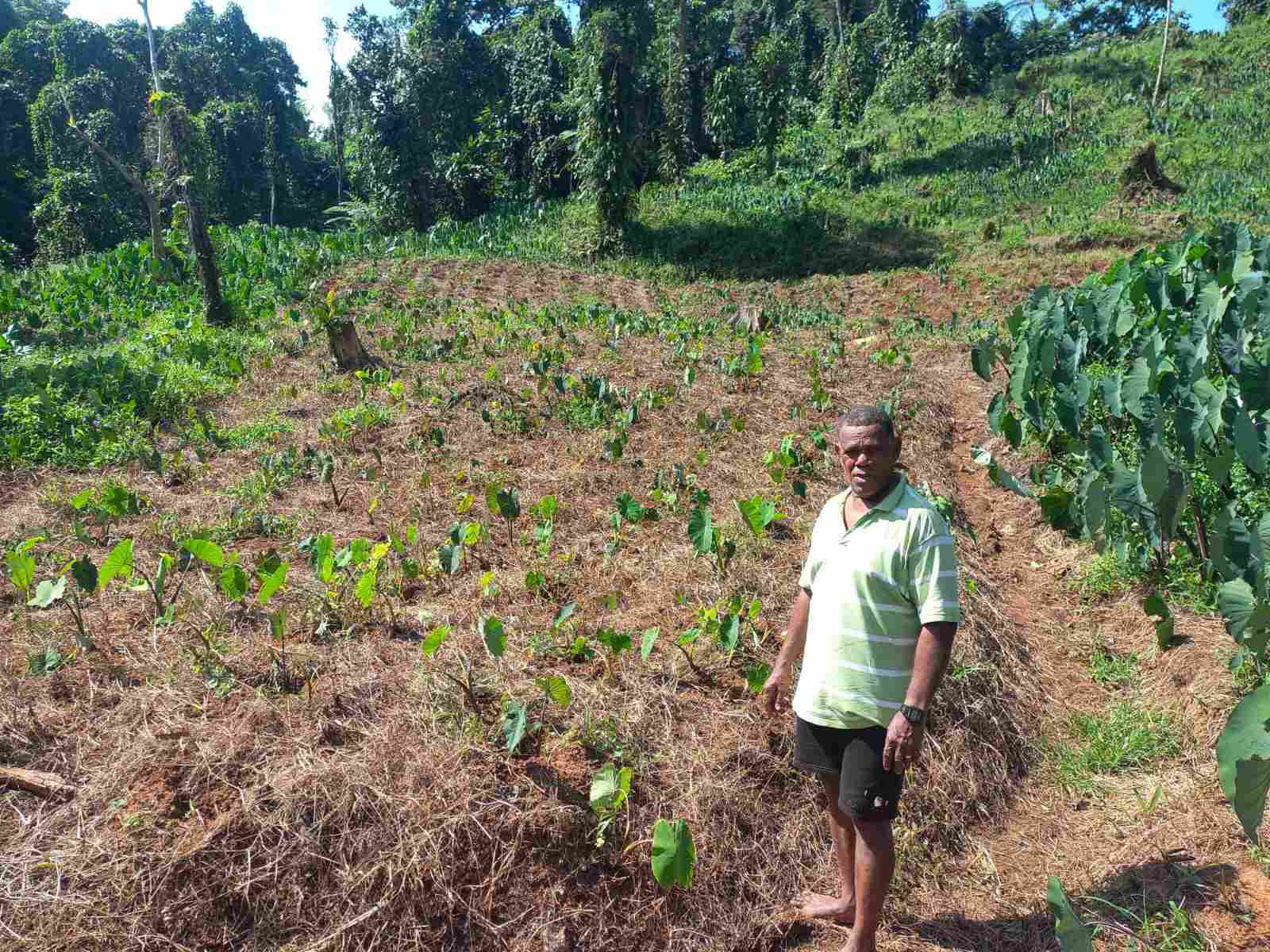MINISTER RAYALU CONTENT WITH NEW BUDGET
July 9, 2024

The importance of non-sugar crops contribution to the economy cannot be overemphasized and the Ministry of Agriculture and Waterways appreciates the budget of $101.2 million which is an indication of the government’s support towards resource-based sectors for growth and development in Fiji.
These were the remarks by the Minister for Agriculture and Waterways, Honourable Vatimi Rayalu when he presented his Budget Response today in Parliament.
“I wish to congratulate the Honourable Minister for Finance, Strategic Planning National Development and Statistics for a well-thought, balanced, and visionary 2024/2025 National Budget which reflects innovation rather than “business as usual,” said Hon. Rayalu.
“In 2023, Fiji earned F$343.4 million from exporting non-sugar crops and livestock products in various forms, including fresh, chilled and value-added. However, the country imported F$1.1 billion worth of Crop and Livestock commodities, resulting in a deficit of F$762.95 million.”
Hon. Rayalu added that the ministry will continue to strive to decrease the food import bill through import substitution, encourage commercial large-scale agriculture, agro processing, and food security programmes.
Below are some key figures
that make up the 2024/2025 budget for the ministry:
![]() Land Resources
Planning Division will receive $1.3 million, a 136% increase from the current
budget. This will enable the Ministry to continue to implement eco-friendly
practices such as sustainable land management and climate-smart agriculture
technology.
Land Resources
Planning Division will receive $1.3 million, a 136% increase from the current
budget. This will enable the Ministry to continue to implement eco-friendly
practices such as sustainable land management and climate-smart agriculture
technology.
![]() Mobile soil testing
laboratories will be deployed to the Northern and Western Divisions to enhance
the turnaround time for soil analysis. The newly renovated Fiji Agricultural
Chemistry Lab will provide cost-effective analytical services to farmers, food
processors, and exporters.
Mobile soil testing
laboratories will be deployed to the Northern and Western Divisions to enhance
the turnaround time for soil analysis. The newly renovated Fiji Agricultural
Chemistry Lab will provide cost-effective analytical services to farmers, food
processors, and exporters.
![]() $400,000 has been
allocated for the purpose of raising awareness and implementation measures to
reduce the impact of Kava Die Back in the industry. Furthermore, research will
be conducted to identify kava varieties that are resistant to the Kava Die Back
Disease.
$400,000 has been
allocated for the purpose of raising awareness and implementation measures to
reduce the impact of Kava Die Back in the industry. Furthermore, research will
be conducted to identify kava varieties that are resistant to the Kava Die Back
Disease.
![]() The Ministry has
allocated $1 million to invest in respective Research Stations to mass produce
seeds and planting materials to enhance our ability to withstand the effects of
climate change and severe weather occurrences.
The Ministry has
allocated $1 million to invest in respective Research Stations to mass produce
seeds and planting materials to enhance our ability to withstand the effects of
climate change and severe weather occurrences.
![]() With a budget of $2
million, the ministry will be able to access a total of 195 hectares of
farmland by maintaining and constructing farm access roads. These roads
complement other development opportunities for the communities including access
to markets, schools, public hospitals, and other infrastructure and
telecommunication services.
With a budget of $2
million, the ministry will be able to access a total of 195 hectares of
farmland by maintaining and constructing farm access roads. These roads
complement other development opportunities for the communities including access
to markets, schools, public hospitals, and other infrastructure and
telecommunication services.
![]() Through a budget of
$100,000, women’s groups and individuals will have the opportunity to acquire cassava
flour processing machines for use in their rural residences. Furthermore,
additional efforts will be made to promote and raise awareness about locally
produced flour and starch from cassava, with the goal of boosting their
production and consumption, as well as connecting them to the markets.
Through a budget of
$100,000, women’s groups and individuals will have the opportunity to acquire cassava
flour processing machines for use in their rural residences. Furthermore,
additional efforts will be made to promote and raise awareness about locally
produced flour and starch from cassava, with the goal of boosting their
production and consumption, as well as connecting them to the markets.
![]() A budget of $1.5
million has been allocated in the new financial year to revitalize the beef
schemes in Fiji. The ministry will continue to work towards enhancing the
cattle herd numbers and genetics in order to decrease beef imports and meet the
demands of both our domestic market and the tourism industry for local beef
production.
A budget of $1.5
million has been allocated in the new financial year to revitalize the beef
schemes in Fiji. The ministry will continue to work towards enhancing the
cattle herd numbers and genetics in order to decrease beef imports and meet the
demands of both our domestic market and the tourism industry for local beef
production.
![]() The Ministry has
allocated a budget of $16.6 million to the Waterways Division to address
drainage and flooding challenges. The focus will be on fully equipping the
drainage board and ongoing dredging works as part of a comprehensive plan to
mitigate flooding, improve drainage, and protect coastal communities.
The Ministry has
allocated a budget of $16.6 million to the Waterways Division to address
drainage and flooding challenges. The focus will be on fully equipping the
drainage board and ongoing dredging works as part of a comprehensive plan to
mitigate flooding, improve drainage, and protect coastal communities.
In the coming weeks, we will report on the various components in the ministry budget and how it will be utilised.
ENDS
